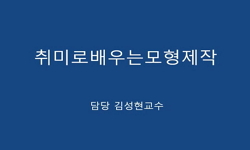In this essay, I examine David Hume’s (1711-1776) and Edmund Burke’s (1729-1797) discourses on taste to argue that their contrasting standpoints on taste suggest the culminating point of the British Empiricist discussions about taste. Both philoso...
http://chineseinput.net/에서 pinyin(병음)방식으로 중국어를 변환할 수 있습니다.
변환된 중국어를 복사하여 사용하시면 됩니다.
- 中文 을 입력하시려면 zhongwen을 입력하시고 space를누르시면됩니다.
- 北京 을 입력하시려면 beijing을 입력하시고 space를 누르시면 됩니다.

영국 경험주의 취미론의 최종점: 흄과 버크의 취미 이해 = The Culmination of British Taste Theories: Taste Theories of Hume and Burke
한글로보기https://www.riss.kr/link?id=A108403177
-
저자
최도빈 (국민대학교)
- 발행기관
- 학술지명
- 권호사항
-
발행연도
2022
-
작성언어
Korean
-
주제어
취미 ; 영국경험론 ; 데이비드 흄 ; 에드먼드 버크 ; 정감 ; taste ; sentiment ; British Empiricism ; David Hume ; Edmund Burke
-
등재정보
KCI등재
-
자료형태
학술저널
-
수록면
447-486(40쪽)
- 제공처
- 소장기관
-
0
상세조회 -
0
다운로드
부가정보
다국어 초록 (Multilingual Abstract)
In this essay, I examine David Hume’s (1711-1776) and Edmund Burke’s (1729-1797) discourses on taste to argue that their contrasting standpoints on taste suggest the culminating point of the British Empiricist discussions about taste. Both philosophers similarly take the empirical method that abstracts the general principles of taste by observing the particular phenomena of aesthetic experiences and taste judgments but the goals of their inquiries are almost opposite to each other. In “Of the Standard of Taste (1757),” Hume seeks to propose a practical standard of taste that could save us from acquiescing a skeptical view on taste that endorses “the natural equality of tastes” while admitting the variety of subjective taste. In contrast, Burke’s “On Taste (1759)” argues for “the uniformity of taste” by pointing out the same substratum of our physical senses under subjective tastes that might appear variable. The process of making taste judgments, which consists of causal relation, sheds different light on this contrast between the two philosophers’ approaches to taste. While Hume focuses on taste sentiments, the final effect of this process, to admit the variety of individual tastes, Burke relies on the first cause of physical senses to advocate the uniformity of taste. This process also lets us understand the preceding taste theories as figuring out the faculty of taste, located in the middle of that process. This overview demonstrates that the British empiricists have taken the most important stages in the process of taste judgments as their theoretical cornerstones. If so, because there would be no more central points to examine taste phenomena, we can assume that no further significant development is available in their attempt to explicate taste.
1 최도빈, "흄의 미학 사상 연구 : '취미의 기준'을 중심으로" 서울대학교 대학원 2006
2 최도빈, "흄 ‘덕의 기준’에 대하여" 철학사상연구소 (67) : 61-92, 2018
3 김채연, "신경미학의 현황-발전과 전망" 한국인지및생물심리학회 27 (27): 341-365, 2015
4 정혜윤, "신경미학, 무엇이 문제인가?" 한국미학회 82 (82): 235-282, 2016
5 Burke, Edmund, "숭고와 아름다움 관념의 기원에 대한 철학적탐구" 마티 2007
6 김한결, "미학대계 I" 서울대학교 출판부 2008
7 Shelley, James, "The Stanford Encyclopedia of Philosophy (Winter 2020 Edition)" 2020
8 Addison, Joseph, "The Spectator (no. 409, 412)" Routledge 1891
9 Korsgaard, Christine M., "The General Point of View: Love and Moral Approval in Hume’s Ethics" 25 (25): 3-42, 1999
10 Herdt, Jennifer, "Religion and Faction in Hume’s Moral Philosophy" Cambridge University Press 2008
1 최도빈, "흄의 미학 사상 연구 : '취미의 기준'을 중심으로" 서울대학교 대학원 2006
2 최도빈, "흄 ‘덕의 기준’에 대하여" 철학사상연구소 (67) : 61-92, 2018
3 김채연, "신경미학의 현황-발전과 전망" 한국인지및생물심리학회 27 (27): 341-365, 2015
4 정혜윤, "신경미학, 무엇이 문제인가?" 한국미학회 82 (82): 235-282, 2016
5 Burke, Edmund, "숭고와 아름다움 관념의 기원에 대한 철학적탐구" 마티 2007
6 김한결, "미학대계 I" 서울대학교 출판부 2008
7 Shelley, James, "The Stanford Encyclopedia of Philosophy (Winter 2020 Edition)" 2020
8 Addison, Joseph, "The Spectator (no. 409, 412)" Routledge 1891
9 Korsgaard, Christine M., "The General Point of View: Love and Moral Approval in Hume’s Ethics" 25 (25): 3-42, 1999
10 Herdt, Jennifer, "Religion and Faction in Hume’s Moral Philosophy" Cambridge University Press 2008
11 Choi, Dobin, "Moral Artisanship in Mengzi 6A7" 18 (18): 331-348, 2018
12 Wieand, Jeffrey, "Hume’s Two Standards of Taste" 34 (34): 129-142, 1984
13 Levinson, Jerrold, "Hume’s Standard of Taste: The Real Problem" 60 (60): 227-238, 2002
14 Shelley, James, "Hume’s Double Standard of Taste" 52 (52): 437-445, 1994
15 Hahn, Susan, "How Can a Sceptic Have a Standard of Taste?" 53 (53): 379-392, 2013
16 Hume, David, "Essays, Moral, Political, and Literary" Liberty Fund 1985
17 Gerard, Alexander, "An Essay on Taste"
18 Hume, David, "An Enquiry Concerning the Principles of Morals: A Critical Edition" Oxford University Press 1998
19 Hume, David, "An Enquiry Concerning Human Understanding" Oxford University Press 1999
20 Costelloe, Timothy M., "Aesthetics and Morals in the Philosophy of David Hume" Routledge 2007
21 Hume, David, "A Treatise of Human Nature" Oxford University Press 2000
22 Burke, Edmund, "A Philosophical Enquiry into the Sublime and Beautiful" Oxford University Press 1998
동일학술지(권/호) 다른 논문
-
- 한국미학회
- 조희원
- 2022
- KCI등재
-
- 한국미학회
- 성기현
- 2022
- KCI등재
-
- 한국미학회
- 박기순
- 2022
- KCI등재
-
종병 산수화론의 도(道)·신(神)·물(物) 이중체용구조 고찰
- 한국미학회
- 김석주
- 2022
- KCI등재




 KISS
KISS






